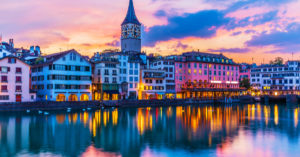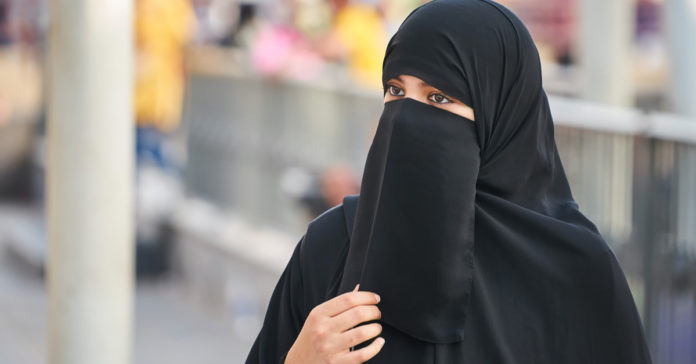Opinion polls suggest a narrow majority of Swiss will back a face veil ban in a referendum on Sunday.
A poll by the Swiss Broadcasting Corporation said 49% would approve the ban while 47% would reject it.
Support for the ban is strongest in Italian-speaking areas of Switzerland (62%), while opinion is evenly split in German-speaking areas (50%) and is lower in French-speaking areas (46%).
According to current estimates, the number of niqabis in Switzerland ranges from less than 30 to 130 individuals. Most niqab wearers are tourists who come to the Alpine country for a vacation, which has prompted the Swiss government to urge voters to reject the ban.
“A nationwide ban would undermine the sovereignty of the cantons, damage tourism and be unhelpful for certain groups of women,” the government said in a statement.
The Islamic Central Council of Switzerland’s spokeswoman, Janina Rashidi, told Al Jazeera that she does not see a need for the proposed law on facial coverings.
“You are criminalising women for wearing something,” she said. “I can understand that covering the face, for some people, might look strange,” she said, “but there are so many things in our society that look strange to one or the other.”
Subscribe to our newsletter and stay updated on the latest news and updates from around the Muslim world!

Rashidi said such laws reinforce the sentiments held by many Muslims of not being viewed as full members of Swiss society, despite being Swiss or having lived in the country for most of their lives.
“The radicalisation that we fear might happen is not because of some wrong perception or religious convictions,” she said. “It would be a direct result of these measures and the public discourse with a clear Islamophobic agenda.”
The ban is being pushed by the Swiss People’s Party. One of its parliamentarians, Jean-Luc Addor, argues the ban promotes equality between men and women and will help fight against radicalisation of Islam.
He said: “In recent years we have witnessed a form of radicalisation of the ostentatious character of Islam in the public space. This trend has manifested in an increase in the number of women who go out wearing the hijab and in the most radical cases wearing a niqab. France, a country which belongs to the same civilisation as us, has practically lost control of the situation. We don’t want to get to that…
“The burqa is a symbol of oppression and alienation of women. We refuse to be complicit in female oppression. We want to promote the dignity and equality of women. Proof is that even on the left, prominent personalities support the initiative. They have understood that it is not credible to invoke principles only to forget them under the pretext that the initiative comes from the ranks of the conservative right.”
Switzerland would not be the first European country to crack down on the religious freedoms and dress of Muslim women. France, Denmark, the Netherlands, Austria, Belgium, Latvia, and Bulgaria have all passed legislations targeting Muslim women’s dress in particular.






![The History of Sylhet and British Bangladeshis [Short Film]](https://5pillarsuk.com/wp-content/uploads/2024/11/IMG_3518-218x150.png)













